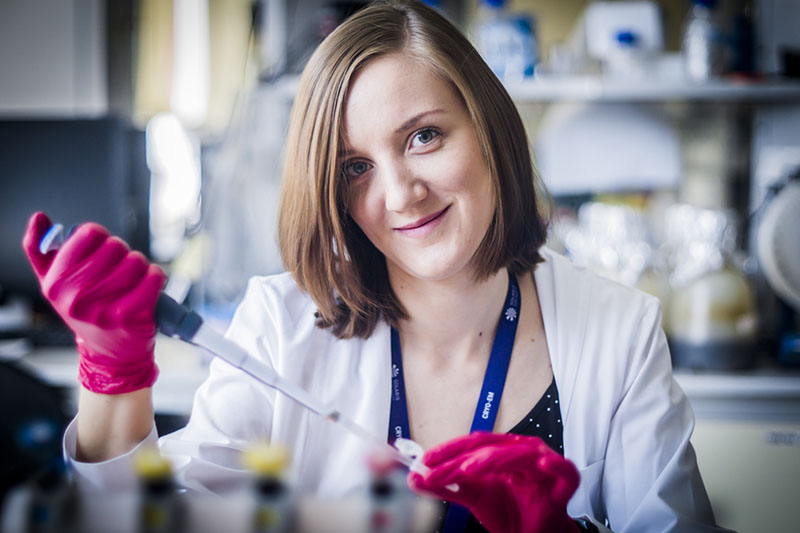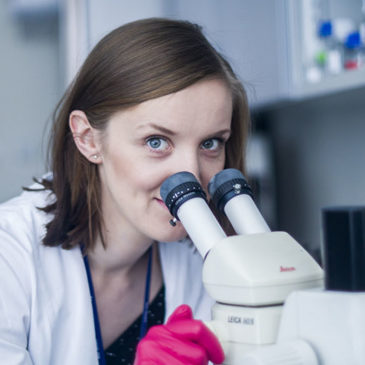The National Science Centre has granted 209 412 PLN for research on deoxyhupusine synthase (DHS) within the 18th edition of Preludium grant. The research will be conducted by Elżbieta Wątor, a 1st year PhD student in Max Planck Research Group under the supervision of Dr. Przemysław Grudnik. The project will aim to unravel molecular details of a unique DHS from T. vaginalis, the enzyme which does not stop at the deoxyhypusine synthesis step but utilizes spermidine to finalize the synthesis of an unusual amino acid hypusine.
We asked Ela to give us a broader explanation of her project.
“Since my master thesis, I am interested in unique posttranslational modifications and particularly in hypusination. To date, only one protein is known to undergo this modification and usually, two enzymes are required to introduce a specific amino acid, hypusine, in eIF5A. However, only recently a peculiar enzyme combining both catalytic activities was identified in Trichomonas vaginalis. In my project I will study this specific enzyme by means of biochemical and structural biology approaches to understand what makes it unique and how can it be used to fight one of the most widespread parasites.” – says Ela, Preludium project leader.
Congratulations to Ela and we are waiting for some more publications about hypusine!
Here you can read about Ela’s previous research on hypusination in humans
The PRELUDIUM competition is targeting researchers who have not yet obtained a PhD degree. In the 18th call for proposals, 1146 projects have been submitted and only 205 were recommended for funding.
Project details:
PI: Elżbieta Wątor
Supervision: Dr. Przemysław Grudnik
Funding: 209 412 PLN
Host: Glatt Lab

